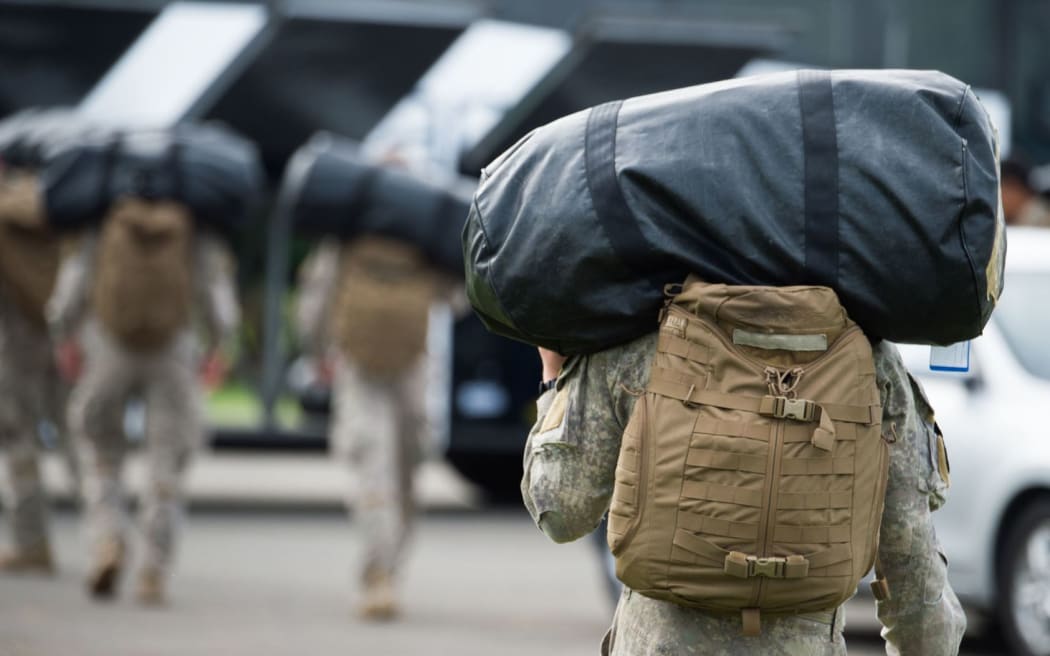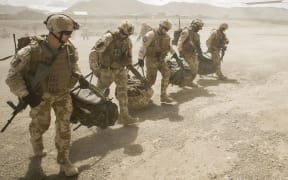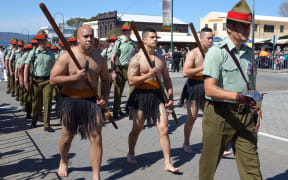The Government's plan to implement a UN resolution to encourage more women into defence, security and conflict resolution is being criticised by Amnesty International as vague.

Photo: Supplied / NZ Defence Force
Amnesty said the draft National Action Plan (NAP) laid out ideas but was not solid enough to make things happen.
The report writers said women were poorly represented in formal peace processes.
In recent peace negotiations, women have represented less than eight percent of participants. At the most recent review, women headed just 15 percent of UN peacekeeping, political and peace building missions.
The report, prepared by officials from Defence, Foreign Affairs and the Police, said that the draft NAP fitted within a framework of strategies that New Zealand was already committed to.
The draft plan's authors said the document would establish a gender-balanced inter-agency Women, Peace and Security advisory group to guide and monitor implementation and reporting under the national action plan.
Plan 'lacks ambition'
Amnesty International New Zealand's advocacy and research co-ordinator Carsten Bockemuehl described the document as a case of being half full, half empty.
"The plan fully recognises the importance of the issue and civil society had the opportunity to comment on this draft.
"That being said, however, Amnesty International believes that the plan can be significantly strengthened in many ways."
Mr Bockemuehl said one of his organisation's major concerns was that the plan lacked ambition.
"Given that New Zealand is a member of the UN security council, we could really expect a little more.
"The plan is rather vague and not very specific, and it is also completely unclear to what extent civil society will be involved in monitoring and implementing this plan.
"Amnesty International thinks civil society organisations, especially women-led organisations, should explicably be part of the inter-agency women, peace and security advisory group, which will monitor the implementation of the plan."
He said for the plan to be put into action on the ground, it would need support from the country's political leaders.
"If they support the action plan and really make the issue a priority, it definitely will impact on the outcome of women across the globe, but then in order to translate it into action, we need a little more public interest and pressure on the issue.
"Last but not least, the Government also needs to agree to having itself held accountable for the plan. Right now, Amnesty International thinks there is a lot of room for improvement in terms of accountability and transparency."
More independent voices needed
The New Zealand chapter of Women in International Security president, Dr Anna Powles, said the final plan needed to include voices that were independent from Government.
"There needs to be far, far greater inclusion of civil society in it. I hope that the final National Action Plan that comes out will actually take into account the need to have a greater integration of civil societies in it."
She said for the plan to be a success it needed clearer indicators of what success means.
"The danger always is that it will just go back to business as usual.
"One of the critical aspects to prevent that will be to ensure that benchmarks and monitoring and evaluation is intensified beyond what the NAP refers to as an annual meeting or an annual review of implementation."
She said Parliament needed an interest in the document to stop it being a report that just gathers dust.
"I think and I would hope that there are individuals within Parliament who would see the value in actually showcasing this issue, given New Zealand history, given our reputation for being the first country to give women the vote, and for having a series of strong prominent female leaders.
Council of Women 'impressed' with draft
National Council of Women of New Zealand national president, Rae Duff, said her organisation was impressed with the draft plan.
"To me, it is formalising the peacekeeping operations that have been happening with the New Zealand Defence Force and the Police Force.
"It's finally down in writing what they're doing and given us indication of what actions they're going to progress with."
She believes the draft plan provides a robust framework on which to focus New Zealand international responsibilities towards increasing women leadership in peacemaking and conflict prevention.
"We think that in the past women have been largely excluded from the peace-making processes, so we think this report has got a much better focus on gender equality and that women hopefully will be more involved in the decision-making processes in conflict prevention and peace building activities."
Mr Bockemuehl said for the first time a report systematically addresses women's experience of war, how they are excluded from decision making, and targeted for sexual violence.
Consultation on the plan has just closed.



